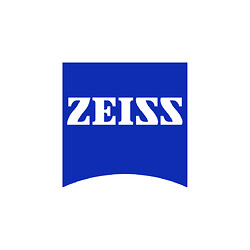Precision meets responsibility
Inspection of medical implants and plastics
Health is a precious asset. Whenever you use a medical component – from a syringe to a complex implant – you have every right to expect that it has been tested for safety. Regulatory requirements for medical components ensure that your rights are protected and translated 100 percent into quality assurance.
Applicable local and regional regulations are a major challenge for companies with a global footprint. Even the smallest deviations from the required quality standards may lead to the loss of certifications and significant costs. And this is where industrial CT systems exhibit their full strengths. Surgical precision starts with measurement. Even for small implants with complex geometries.
Quality control for orthopedic implants
Orthopedic implants must function in the human body without any imperfection – even under the most exacting physiological conditions. Implants have complex geometries and free-form surfaces and normally stay in the body for life. Since they become an intrinsic part of the human body, they must undergo high-precision inspections during quality control. Aside from the evaluation of raw material properties and technical cleanliness, the complete 3D inspection of the implants is by far the most important pillar in quality assurance.
Surgical precision starts with measurement. Even for small implants with complex geometries.
Thanks to its speedy measuring times and results down to the finest level of detail, the CT system, ZEISS METROTOM 6 scout, helps manufacturers to increase productivity. This class of CTs is especially powerful when measuring small surfaces and complex geometries, for example, bone plates, screws and tooth implants. GOM Volume Inspect then evaluates specified aspects of the 3D volume data. The software offers powerful visualization and inspection features.
Microscopy is another important mainstay when it comes to controlling the quality of implants. Light and electron microscopes are well suited to ensuring consistent raw material quality at the microscopic and nano level. In the manufacturing process itself, the systems are also able to identify particle contamination, thus ensuring technical cleanliness.
Quality control for medical plastic products
Medical plastic products such as inhalers, insulin pens and syringes are vital for a patient’s survival and must meet stringent regulatory requirements. Manufacturers therefore have no choice but to perform mandatory quality controls for a large quantity of parts. Even the smallest characteristics as well as freeforms, transparent materials or parts that tend to warp must be measured and evaluated.
Combinations such as the industrial computed tomography system ZEISS METROTOM 1 and the specialized software solution GOM Volume Inspect are particularly efficient because they can inspect many components simultaneously. The systems are nondestructive and suited for the entire production process, starting with first article inspections. The result: exhaustive component data even for internal geometries.
ZEISS METROTOM 1 is ideal when it comes to inspecting small and medium-sized plastic parts. Thanks to its user-friendliness, it is easy to get started with computed tomography. The cross-platform GOM Volume Inspect software is part of the inspection process. This convenient software is compatible with all standard volume data – it inspects Geometric Dimensioning and Tolerancing (GD&T), identifies material defects and verifies wall thicknesses.
GOM Volume Inspect combines powerful 2D and 3D volume features with innovative measuring tools. The standalone software offers full analysis power for any computed tomography system.
Learn more in this webinar recording.
